Sam Cooke, ‘A Change is Gonna Come’
As promised, we’ve embarked on a visit to three “spookily existential posthumous hits”. Last week we visited Otis Redding, an artist I’m still learning to fully appreciate, and ‘(Sitting on) The Dock of a Bay’, which he recorded 18 days before he was killed.
This week, we’re going to pay homage to an artist I’ve long held in the highest esteem, Sam Cooke, and to his universally acclaimed Civil Rights anthem ‘A Change is Gonna Come’, recorded a year before his death but released only posthumously.
We’ve written several times about Sam Cooke (1931-1964) – about his gospel roots, his crossover to rhythm and blues (for example, SoTW 048, ‘Bring It on Home to Me’); his success as a genteel creator of pop hits (SoTW 136, ‘Wonderful World’); and his incredible talent as a singer (SoTW 120, ‘Shake, Rattle and Roll’).
In 1963, Cooke was at the top of his game–hits galore, successful nightclub and concert gigs, and a major-league shmuck manager (Allen Klein, later of Beatles infamy), the highest-earning black entertainer in the world. But while on tour (which he did non-stop to keep away from his crumbling marriage), his 18 month old son, Vincent, drowned in their front yard pool. Sam blamed Mrs Barbara Cooke, and sank into depression, requesting that no one wear black to the child’s funeral.
According to his biographer, Cooke had been profoundly affected by Bob Dylan’s ‘Blowin’ in the Wind’ (a hit at the time for Peter, Paul and Mary), moved that such a poignant song about racism in America could come from someone who was not black. While on tour in May 1963, and after speaking with sit-in demonstrators in Durham, North Carolina following a concert, Cooke returned to his tour bus and wrote the first draft of what would become “A Change Is Gonna Come”. Then in October 1963, he was arrested and thrown in jail after refusing to be turned away from a Shreveport, La., hotel which had initially accepted his reservation.
He recorded ‘A Change is Gonna Come’ on December 21, 1963 (arrangement by René Hall), a month after Kennedy’s assassination. But Klein kept it under wraps for a year, till it was finally released as the B-side of a vibrant single, ‘Shake’ (which we heard last week in Otis Redding’s version). The original version of ‘A Change is Gonna Come’ was shortened by 30 seconds for the single, deleting the most explicitly anti-segregation verse: I go to the movie and I go downtown/Somebody keep telling me, “Don’t hang around”/It’s been a long, a long time coming/But I know a change gonna come, oh yes it will.
Apparently Sam wasn’t finished twisting the night away, because on December 11, 1964, he took a hooker to his motel room. When he stumbled into the bathroom (highly intoxicated), she grabbed her clothes, his clothes and his cash and ran off. She either did or didn’t stop in the motel office, but Sam was convinced she was hiding there. He barged in, clad in the only clothes Ms Elisa Boyer had left (a sport jacket and one shoe). He vociferously demanded an explanation from the manager, Ms Bertha Franklin. There was a struggle, during which Ms Boyer shot and killed Cooke. The verdict was justifiable homicide. Of course, other versions are rife, including even a conspiracy theory. Cooke was 33.
‘A Change is Gonna Come’ was only a moderate hit at the time, but it was quickly adopted as an anthem by the Civil Rights movement, recorded and performed by everyone. Its status continues to grow today, despite the fact that Allen Klein refuses to allow the use of the original. Rolling Stone ranked it #12 in its list of 500 greatest songs, and ‘the Greatest Soul Song Ever’.
It was selected by the Library of Congress as one of twenty-five selected recordings for the National Recording Registry. Here’s a nice NRP program on the song, including Aretha Franklin saying “Sam Cooke, bar none, was one of the greatest singers of all time.” Here’s Aretha’s own very beautiful version of ‘A Change is Gonna Come’. Here’s another very gospel treatment by Patti LaBelle.
The song has had more cover versions than the number of ants on a Tennessee anthill, so we’ll just give you a little sampling. Here’s Otis Redding. Here’s Aaron Neville. Here are The Righteous Brothers. Here’s Tina Turner. Here’s Bob Dylan (how’s that for irony?–the wheel’s still in spin), and here’s The Band. Here’s James Taylor’s version, first time ever on the internet.
Here’s Seal. He tied his cover of the song to Barack Obama’s statement in his 2008 victory speech “change has come to America.” Bettye LaVette and Jon Bon Jovi performed this song at President Obama’s inauguration celebration. In case you didn’t notice, she’s black and he’s white and they’re both EQUAL-ly soulful and passionate. Gee, do you think there might be a message hiding there?
‘A Change is Gonna Come’ was performed in the 2011 Miss America Pageant by Miss Kentucky, Djuan Trent, during which she maintained that her grandparents wrote the song. It was even performed in the finals of American Idol by Adam Lambert, provoking “ervin” of Indianapolis to write: “when i first heard this song it was on “American Idol” i really think that this song has alot of meaning. i started to cry because i felt where the song was coming from. just the title made me think. the song makes me think. this song is whats hot i would put this on my mp3 player”
But it’s not Sam’s fault that ervin was inspired to think (and to cry). It’s enough to make you think that perhaps Allen Klein had the right idea, to keep the song under wraps, because ‘A Change is Gonna Come’ really is too noble to be performed on American Idol. But it’s in the public domain, and we’ll just have to live with that. Because we don’t know what’s up there beyond the sky. And because we need music like this to remind us just how difficult it is for any man, black or white or plaid, to maintain his dignity in this world.
I was born by the river in a little tent
Oh and just like the river I’ve been running ever since
It’s been a long, a long time coming
But I know a change gonna come, oh yes it will
It’s been too hard living but I’m afraid to die
‘Cause I don’t know what’s up there beyond the sky
It’s been a long, a long time coming
But I know a change gonna come, oh yes it will
I go to the movie and I go downtown
Somebody keep telling me, “Don’t hang around”
It’s been a long, a long time coming
But I know a change gonna come, oh yes it will
Then I go to my brother
And I say, “Brother, help me please”
But he winds up knockin’ me
Back down on my knees
Oh there been times that I thought I couldn’t last for long
But now I think I’m able to carry on
It’s been a long, a long time coming
But I know a change gonna come, oh yes it will.

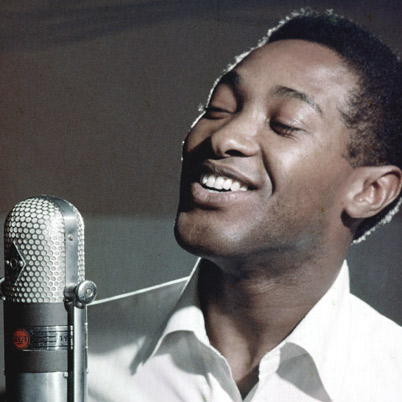
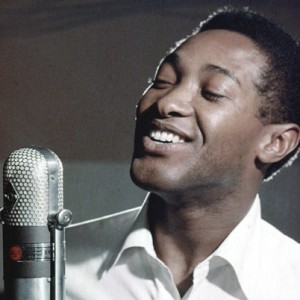
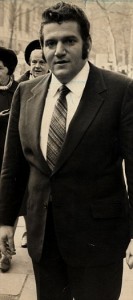
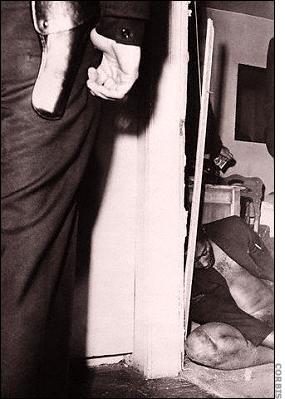



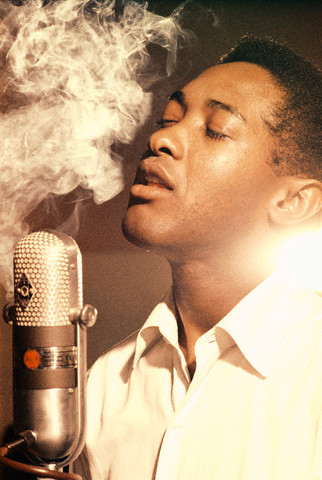
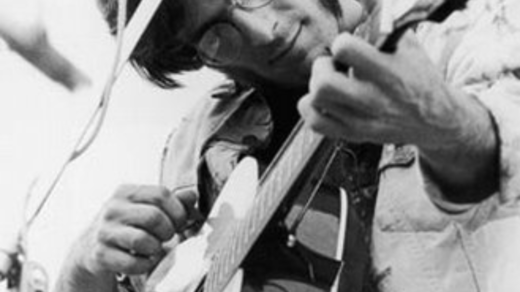


I had no idea that Sam Cooke wrote A Change is Gonna Come, one of my all-time favorites. Klein’s such an SOB.
Great post, good music and well-thought out pictures. Keep up the good work, Jeff.
Thanks for wanting to keep my uncles name alive, but I hope you,re wise enough to look into Sams’ background and the things that he stood for. Repeating that bull of a cover story about his death is just that. When I went to your blog I guess I expected too much. I don’t mean any disrespect, but bro Sam would never need to rape nor would he go to a dump like that for a quickie or nothing else. God bless and have a wonderful holiday.
Sam Cooke was the greatest singer of them all black and white also he wrote his own music and own his records company SAR too along with A Change Gonna Come he also wrote Keep Moving On December 1963 his smooth voice will touch your soul if it takes all night long yeah